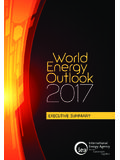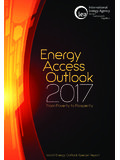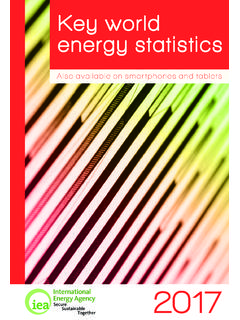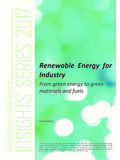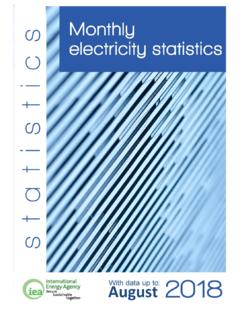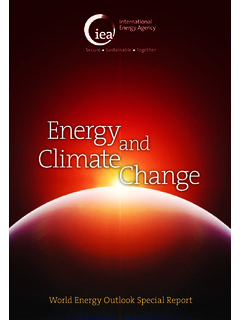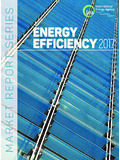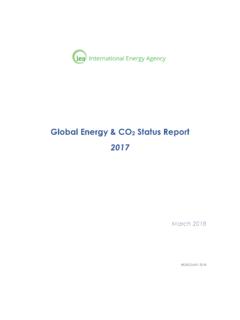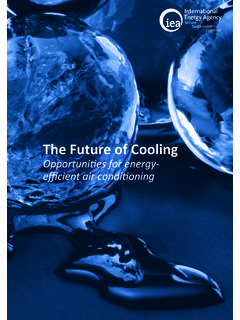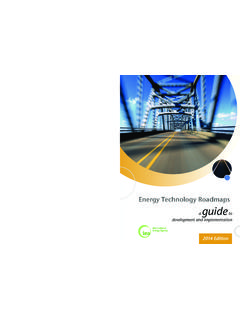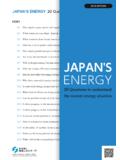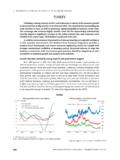Transcription of Mexico Energy Outlook - International Energy …
1 Secure Sustainable Together Mexico Energy Outlook World Energy Outlook Special Report Secure Sustainable Together Mexico Energy Outlook World Energy Outlook Special Report International Energy AGENCY. The International Energy Agency (IEA), an autonomous agency, was established in November 1974. Its primary mandate was and is two-fold: to promote Energy security amongst its member countries through collective response to physical disruptions in oil supply, and provide authoritative research and analysis on ways to ensure reliable, affordable and clean Energy for its 29 member countries and beyond. The IEA carries out a comprehensive programme of Energy co-operation among its member countries, each of which is obliged to hold oil stocks equivalent to 90 days of its net imports. The Agency's aims include the following objectives: n Secure member countries' access to reliable and ample supplies of all forms of Energy ; in particular, through maintaining effective emergency response capabilities in case of oil supply disruptions.
2 N Promote sustainable Energy policies that spur economic growth and environmental protection in a global context particularly in terms of reducing greenhouse-gas emissions that contribute to climate change. n Improve transparency of International markets through collection and analysis of Energy data. n Support global collaboration on Energy technology to secure future Energy supplies and mitigate their environmental impact, including through improved Energy efficiency and development and deployment of low-carbon technologies. n Find solutions to global Energy challenges through engagement and dialogue with non-member countries, industry, International organisations and other stakeholders. IEA member countries: Australia Austria Belgium Canada Czech Republic Denmark Estonia Finland France Germany Secure Greece Sustainable Hungary Together Ireland Italy Japan Korea Luxembourg Netherlands New Zealand Norway Poland Portugal OECD/IEA, 2016 Slovak Republic International Energy Agency Spain 9 rue de la F d ration Sweden 75739 Paris Cedex 15, France Switzerland Turkey United Kingdom Please note that this publication United States is subject to specific restrictions that limit its use and distribution.
3 The European Commission The terms and conditions are also participates in available online at the work of the IEA. Foreword Mexico is recasting its Energy sector. The Reforma Energ tica and Mexico 's strong leadership on environmental issues underpin the vision of a modern Energy system that meets the needs of a growing and modernising economy. The scale of ambition is truly impressive. The effects will be felt in Mexico and beyond. Mexico and the International Energy Agency have longstanding ties, as befits a country that has for decades been a major Energy player. The pace and scope of our co-operation has grown in recent years, culminating in the request made by Mexico presented at the IEA. Ministerial Meeting in November 2015 to join the Agency. Closer ties with the IEA will not only enable Mexico to tap IEA member country experience in tackling their own Energy policy challenges, but also enable the IEA to absorb lessons learned and innovative solutions developed with the Reform in Mexico .
4 The procedures and steps required for Mexico 's accession are well underway and I hope that they will be completed in 2017. Membership would not only be a milestone for Mexico and the IEA, it would also open the door to greater engagement by the IEA across Latin America. As highlighted in this World Energy Outlook Special Report, Mexico 's Energy Reform has already made remarkable progress, in no small part thanks to the leadership and vision shown by Secretary Pedro Joaqu n Coldwell. The transformation is not yet complete and there are many tasks that still lie ahead, but there are good reasons to expect that progress will continue. I am sure the economic and social benefits will be felt by many generations to come. I trust that this report will provide useful insights to all stakeholders in Mexico , including policy-makers, the Energy industry, Energy experts and the general public alike. I. also hope that this report will help to raise awareness elsewhere in the Energy world about the scale and importance of the profound changes underway in Mexico .
5 The findings in the report are those of the IEA alone, but the process has been a collaborative one in which the World Energy Outlook team has worked closely with the Government of Mexico , especially with SENER, as well as with industry and leading Mexican research organisations, and International experts. I would like to extend my sincere appreciation to all those that have provided their support throughout this study. Dr. Fatih Birol Executive Director International Energy Agency Foreword 3. Acknowledgements This report was prepared by the World Energy Outlook (WEO) team in the Directorate of Sustainability, Technology and Outlooks (STO) of the International Energy Agency (IEA), in co-operation with other directorates and offices of the Agency. The Director of STO, Kamel Ben Naceur, provided guidance throughout the project. The study was designed and directed by Tim Gould, Head of the WEO Energy Supply Outlook Division.
6 Ali Al-Saffar and Toshiyuki Shirai co-ordinated and co-led work across the chapters. Principal contributors to the report were: Manuel Baritaud, Elie Bellevrat, Hannah Daly, Nathan Frisbee, Markus Klingbeil, Olivier Durand-Lasserve, Rodolfo Lobato (seconded to the WEO. team from Mexico 's Secretariat of Energy ), Kristine Petrosyan, and Brent Wanner. Other contributors were Zakia Adam, St phanie Bouckaert, Laura Cozzi, Davide D'Ambrosio, Sixten Holm, Paul Hugues, Fabian K sicki, Christophe McGlade, Pawe Olejarnik, Maria Sobron Bernal, Molly A. Walton, David Wilkinson and Shuwei Zhang. Teresa Coon provided essential support. Robert Priddle carried editorial responsibility. The study benefited from numerous inputs, comments and feedback from senior IEA. management and IEA experts, in particular: Paul Simons, Keisuke Sadamori, Rebecca Gaghen, Laszlo Varro, Aad van Bohemen, Alessandro Blasi, Brian Dean, Joerg Husar, David Morgado, C dric Philibert, Miika Tommila and Martin Young.
7 Gisela Campillo from the OECD and Andrea Calderon Irazoque from Imperial College (London) also contributed to the report. Thanks go to the IEA's Communication and Information Office for their help in producing the final report, particularly Astrid Dumond for production and to Bertrand Sadin for graphics. Debra Justus was the copy-editor. We would like to thank the Government of Mexico for the close co-operation that we enjoyed during the preparation of this report. We are particularly grateful to Joaqu n Coldwell, Secretary of Energy for his support throughout the study. Sincere thanks also go to the many senior officials and experts who offered their time and assistance, in particular to Leonardo Beltr n Rodr guez, Undersecretary for Planning and Energy Transition; Aldo Flores, Undersecretary of Hydrocarbons; C sar Emiliano Hern ndez Ochoa, Undersecretary of Electricity; Od n de Buen Rodr guez, Director General of the National Commission for the Efficient Use of Energy (CONUEE); and to Fernando Zendejas Reyes, Head of the Legal Affairs Unit at the Secretariat for Energy , for his continuous support and his role in co-ordinating the peer review of the report among multiple ministries and organisations.
8 Thanks also go to officials at the Secretariat of Energy , particularly to C sar Alejandro Hern ndez Alva, Alejandro Amerena, Giovanni Anguiano, Rosanety Beltr n, Veronique Deli, Jos Carlos Femat, Rafael Alexandri Rionda, Javier Flores, Luis Gerardo Guerrero and Juan Herrera. We are grateful to Lourdes Melgar, Robert Wilhelm Fellow in Center for International Studies Massachusetts Institute of Technology, for her valuable insights. Data from a number of Mexican sources were essential to bring this study to completion. Among the Mexican institutions providing Energy data to the IEA we are particularly grateful to the Secretariat of Energy and National Institute of Statistics and Geography (INEGI). Acknowledgements 5. The IEA held an expert workshop in Mexico City on 7 April 2016 to gather essential input to this study. We are thankful to the workshop participants for providing valuable insights, feedback and data for this analysis.
9 Many high-level government representatives and experts have contributed to the process, from consultations and contributions to the workshop, to reviewing the draft at a later stage; their insights and comments were of great value. They include: Claudio Alatorre Inter-American Development Bank Marco Alberti Enel Mourad Ayouz EDF. Lucia Bustamante Shell Mexico Vanessa Zarate Castillo Petr leos Mexicanos (PEMEX). Marc Debever EDF. Soffia Alarc n D az Secretar a de Medio Ambiente y Recursos Naturales (SEMARNAT) (Secretariat of Environment and Natural Resources). Toshihiro Furuya Japan Bank for International Cooperation Guillermo Ignacio Garc a Comisi n Reguladora de Energ a (CRE) ( Energy Regulatory Commission). Jorge Guerrero Comisi n Nacional de Vivienda (CONAVI) (National Housing Comission). Julian Guerrero Shell Mexico L zaro Trujillo Hern ndez Instituto Nacional de Estad stica y Geograf a (INEGI). (National Institute for Statistics and Geography).
10 Edze Kieft Mexican Petroleum Institute David Knapp Energy Intelligence Group Adrian Lara Global Data Alejandra Leon IHS Energy Mariano Ornelas L pez Centro Nacional de Control del Gas Natural (CENAGAS) (National Centre for Control of Natural Gas). Pedro Luna Comisi n Federal de Electricidad (CFE) (Federal Electricity Commission). David Madero CENAGAS. Juan Quintanilla Mart nez The National Autonomous University of Mexico Wataru Matsumura Ministry of Economy, Trade and Industry (METI), Japan Nicola Melchiotti Enel Green Power Luis ngel Mart nez Montoya Agencia Nacional de Seguridad Industrial y de Protecci n al Medio Ambiente del Sector Hidrocarburos (ASEA) (National Agency for Industrial Safety and Environmental Protection in the Hydrocarbons Sector). Nobuhiro Nakajima Japan External Trade Organization (JETRO). 6 World Energy Outlook 2016 | Special Report Toshiyuki Nawata Japan Oil, Gas and Metals National Corporation(JOGMEC) Mexico Carlos Pascual IHS Markit Carlos Mu oz Pina Ministry of Finance and Public Credit, Mexico (SHCP).
